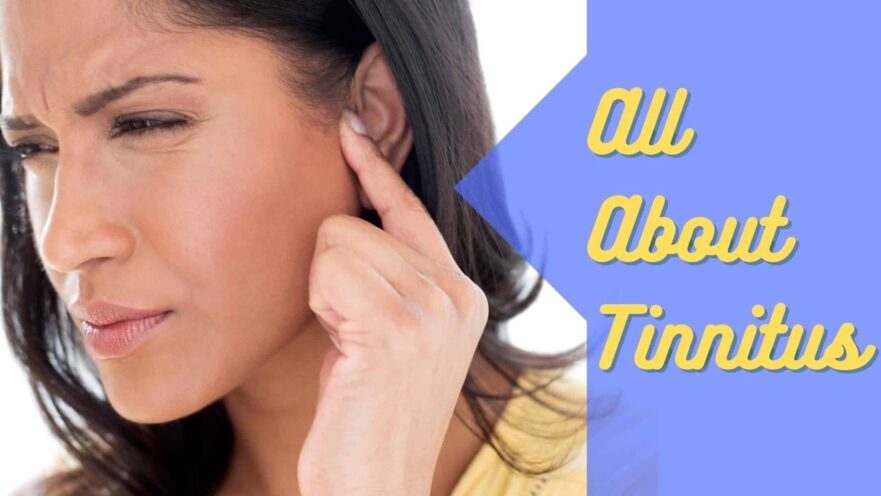Are you hearing a strange buzzing or ringing sound? Does no one around you hear this sound? The sound you’re hearing is tinnitus, and it’s actually coming from inside your ears. Tinnitus is a sound that only you can hear, and you will notice it the most when you’re in a quiet place.
What Does Tinnitus Sound Like?
Tinnitus is different for everyone, and each person will experience it differently. Some people may hear a high-pitched screeching, while others may hear a low rumble. Common tinnitus sounds include:
- Ringing
- Buzzing
- Humming
- Whooshing
- Rumbling
- Roaring
- Pulsing
- Clicking
- Hissing
Is Tinnitus Permanent?
Tinnitus can be permanent or temporary. If you’ve ever left a concert or stepped out of the bar and heard ringing in your ears, you’ve experienced temporary tinnitus. You may only hear it once in a while, or you may also notice it several times throughout the week.
If you hear tinnitus whenever you’re in the quiet, you have permanent tinnitus. This tinnitus can cause a lot of anxiety and stress, interfere with sleep, and make you more irritable and easily annoyed.
What Causes Tinnitus?
One of the most common causes of tinnitus is hearing loss. If you have sensorineural hearing loss, some of the cells in your ear are damaged. These cells can’t translate sound waves into electrical impulses, so they don’t send your brain any information about the sound around you. This causes hearing loss. It can also cause tinnitus. These damaged cells will sometimes send signals to the brain in the absence of other environmental sounds, and that’s why you hear tinnitus. The most common causes of tinnitus include:
- Hearing Loss
- Ear infections
- Buildup of earwax or another blockage in the ear canal
- Head or ear injury that damages the inner ear
- Certain medications
- Meniere’s disease that changes the pressure in the inner ear
- Eustachian tube dysfunction
- Ear bone changes that disrupt the ear canal or middle ear
When to See a Doctor
Wondering if your tinnitus is a cause for concern? You should see your doctor if your tinnitus is so bothersome that it interferes with your daily life. You should also see your doctor if you’ve been experiencing dizziness, hearing loss, sleep loss, or high anxiety because of your tinnitus.
Risk Factors for Tinnitus
Tinnitus can affect anyone, but there are a few factors that can increase your risk of developing tinnitus.
- Noise: One of the biggest risks when it comes to tinnitus is loud noise. Excessively loud noise can quickly damage your hearing, causing both hearing loss and tinnitus. For example, working on a loud construction site, attending concerts and sports events, or working in a crowded bar can all damage your ears. The best way to minimize your risk of hearing loss and tinnitus is by wearing hearing protection whenever you’re in noisy environments.
- Age: Your risk of developing both hearing loss and tinnitus increase as you age.
- Smoking: Cigarette smoke can constrict blood flow, damage your ears, and increase your risk of tinnitus.
- Cardiovascular disease: Heart problems can increase your risk of developing tinnitus.
Tinnitus Reduces Your Quality of Life
Tinnitus might not seem like a big deal, but if you’re living with constant tinnitus it will affect every area of your life. Tinnitus can cause:
- Stress and anxiety
- Sleeping problems
- Fatigue
- Memory issues
- Difficulty concentrating
- Irritability and annoyance
Many of these issues can also make tinnitus worse. When you feel more stressed or exhausted, your tinnitus will be more noticeable and annoying. This negative cycle continues until you treat tinnitus.
Tinnitus Treatment Options
Tinnitus can’t be cured, but there are several effective tinnitus treatment options.
- Tinnitus retraining therapy: This technique combines therapy with sound masking technology. The goal is to make tinnitus less noticeable and lead to fewer negative effects.
- Cognitive behavioral therapy: You can receive cognitive behavioral therapy from a mental health professional such as a counselor or psychologist. You’ll learn coping skills to manage tinnitus and reduce anxiety.
- Masking device: You can use a white noise machine or other device to play a sound that masks tinnitus. For example, the noise of a fan, static, or ocean waves, can effectively mask tinnitus sounds.
- Hearing aids with tinnitus therapy: Hearing aids have built-in sound masking programs, so you can get tinnitus relief wherever you are.
If you have been struggling with tinnitus, we’re here to help! Contact us today to schedule a consultation and to learn more about tinnitus treatment options.

